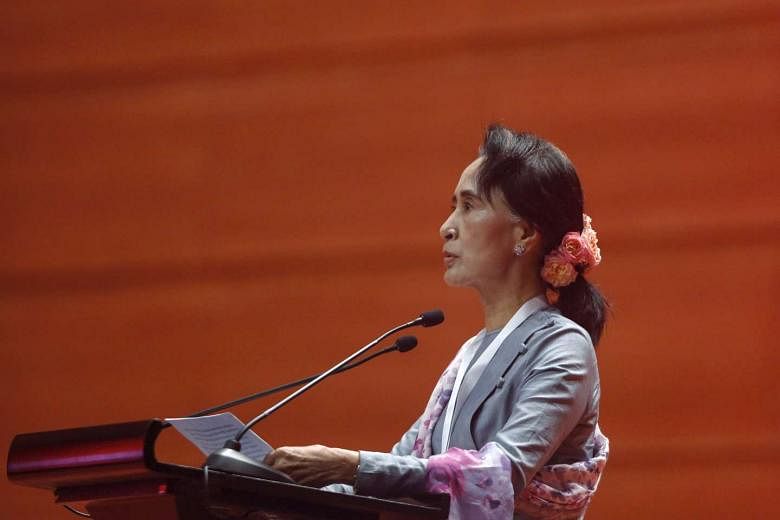YANGON (AFP) - Aung San Suu Kyi and Myanmar's powerful army chief held fresh talks on Monday (Jan 25) on the country's dramatic political transition, days before a military-dominated legislature hands over to the most democratic parliament in generations.
The discussions are the latest effort to smooth the transfer of power following a landslide victory for Suu Kyi's National League for Democracy in November elections, which is set to transform the once-cloistered nation after decades under military rule.
The meeting saw "friendly and open discussions about the formation of a new government, the transition, post-election peace and stability, the parliament and peace process", according to a statement posted on the NLD's official Facebook page late on Monday.
Observers see a rapprochement between Suu Kyi, 70, and the military chief as crucial to ensuring the political handover stays on track.
The two-hour closed-door meeting was their second since the elections.
Victorious National League for Democracy MPs will take their seats in parliament in the capital Naypyidaw on Feb 1.
Min Aung Hlaing also released a statement on his Facebook page accompanied by photographs of the meeting, including one of him in military uniform shaking hands with a smiling Suu Kyi wearing a vivid green traditional "longyi" skirt.
Myanmar is gripped by speculation over who will become the next president. Suu Kyi, currently barred from the role by an army-drafted constitution, has vowed to rule "above" the next leader.
Observers say this could put her at loggerheads with the military, which retains huge political and economic power.
The new parliament will choose between three presidential candidates - selected by elected politicians in the two houses and by the military, which under the constitution holds a quarter of the legislature's seats.
The new leader will replace incumbent President Thein Sein in late March, finalising a protracted political transition which he began in 2011 after almost half a century of outright military rule.
Suu Kyi, whose independence hero father is considered the founder of Myanmar's modern army, called for national reconciliation following her party's sweeping election win.
But the NLD retains the scars of its similar landslide in 1990 polls. The results were ignored by the military, which dug in for another two decades.
The junta kept Suu Kyi under house arrest for some 15 years, as part of its repressive response to the democracy movement.
Relations have thawed tentatively in recent years as the Nobel laureate entered parliament under Thein Sein, a former general who has won praise for shepherding the long-isolated nation's return to the international fold.

